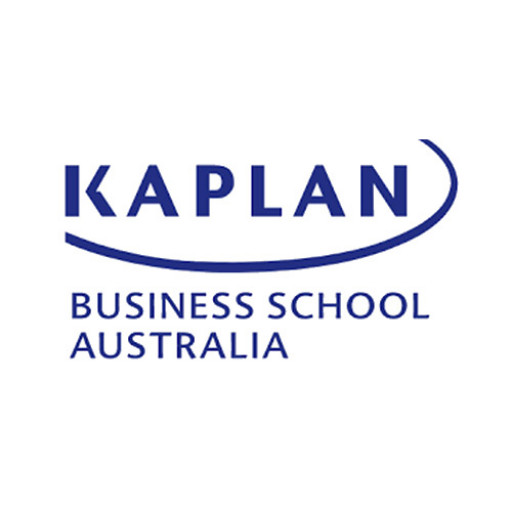The Bachelor of Business Information Systems at Swinburne University of Technology is a comprehensive undergraduate program designed to equip students with the skills and knowledge necessary to succeed in the rapidly evolving digital business environment. This degree combines core business principles with specialized training in information systems, allowing graduates to bridge the gap between business needs and technological solutions. Throughout the course, students will explore topics such as data management, software development, systems analysis, cybersecurity, and project management. Emphasizing practical applications, the program offers hands-on experience through industry projects, internships, and access to state-of-the-art laboratories. Students will also learn about emerging technologies including cloud computing, artificial intelligence, and big data analytics, preparing them to innovate and solve complex problems in diverse organizational contexts. The curriculum is designed to foster critical thinking, problem-solving abilities, and technical competence, ensuring graduates are well-prepared for roles such as business analyst, systems designer, IT consultant, and data analyst. Swinburne’s strong industry connections and focus on experiential learning enable students to develop professional networks and gain real-world insights. The program is suitable for students interested in pursuing careers at the intersection of business and technology, particularly those eager to leverage information systems to drive organizational success. With a flexible delivery mode, including on-campus and online options, students can tailor their learning to suit their personal and professional commitments. Upon graduation, students will possess a blend of technical skills and business acumen essential for addressing current and future challenges in the digital economy, making them valuable assets to employers worldwide.
This amount is accredited with the Australian Computer Society (ACS) at the professional level.
- Year 12 or equivalent
- VCE prerequisites: Units 3 and 4: a minimum study score of 25 in English (or equivalent) or even 30 in English (EAL). Extra performance criteria and requirement requirements may also apply. Completion or partial completion of an approved tertiary qualification (including Certificates IV (completed), Diplomas, Advanced Diplomas, Associate Degrees and Degrees). English language requirements - satisfactory conclusion of one of the following: Swinburne's English for Academic Purposes (EAP 5 high degree ) with overall 65 percent, all of skills 65 percent
- Minimum IELTS overall band of 6.0 (Academic Module) with no single band below 6.0
- TOEFL iBT (web-based ) minimum score of 75 having a reading ring a minimum of 18 and writing ring a minimum of 20
- Pearson (PTE) minimum score of 50 (no communicative skills less than 50)
- every other equivalent assessment of English language proficiency. Note: A necessity for several courses, the Pearson Test of English Academic (PTE Academic) can now be done online campus in Hawthorn.
Want to improve your English level for admission?
Prepare for the program requirements with English Online by the British Council.
- ✔️ Flexible study schedule
- ✔️ Experienced teachers
- ✔️ Certificate upon completion
📘 Recommended for students with an IELTS level of 6.0 or below.
The Bachelor of Business Information Systems at Swinburne University of Technology offers a range of financing options to support students throughout their studies. Domestic students may access government financial assistance programs, such as futher loans through the Australian Commonwealth Supported Place (CSP) scheme, which subsidizes part of the tuition fees, reducing the financial burden. Additionally, students can apply for various scholarships and grants offered by Swinburne University, aimed at supporting high-achieving, disadvantaged, or international students. These scholarships can significantly reduce overall education costs and provide additional financial support during the academic journey.
International students are generally responsible for paying full tuition fees, which vary depending on the program specifics and whether any scholarships are awarded. Swinburne University provides payment plans that enable international students to spread the cost of their tuition fees over manageable installments, making funding more accessible and less burdensome. For both domestic and international students, there are also options to seek external scholarships offered by government bodies, private organizations, and industry partners. These scholarships are competitive and often require academic merit, extracurricular achievements, or community service.
Students are encouraged to explore loan options, including the Australian government’s HELP (Higher Education Loan Program), which allows eligible students to defer their tuition fees and repay them gradually once employed. Swinburne also offers financial advice services to help students make informed decisions about funding their education, manage budgets, and access emergency financial assistance if needed. Furthermore, some students choose part-time work during their studies to support their living expenses, with Swinburne’s location offering proximity to employment opportunities in Melbourne's vibrant business and technology sectors.
Overall, the program’s financing options are designed to make quality education accessible and affordable, ensuring that students can focus on their academic and career progression without undue financial stress. Swinburne’s comprehensive approach combines government support, university scholarships, flexible payment arrangements, and external funding opportunities to accommodate diverse student needs, thereby fostering an inclusive learning environment that encourages diverse backgrounds and aspirations to succeed.
The Bachelor of Business Information Systems at Swinburne University of Technology is a comprehensive program designed to equip students with essential skills and knowledge to analyze, design, and implement information systems within a business context. The curriculum combines core business principles with specialized training in information technology, ensuring graduates are well-prepared to meet the demands of the rapidly evolving digital economy. Students will explore topics such as systems analysis and design, database management, programming, cybersecurity, and project management, providing a solid foundation in both technical and managerial aspects of business information systems.
Throughout the course, students have opportunities to engage in practical learning through industry placements, projects, and internships, fostering real-world experience and professional connections. The program emphasizes the development of critical thinking, problem-solving, and communication skills, which are vital for roles in technology consulting, systems analysis, IT management, and business analytics. Swinburne’s strong industry links and focus on applied learning ensure that graduates are workforce-ready upon completion.
The program is structured to accommodate diverse student backgrounds, offering foundational subjects in computing and business to build confidence in those new to the field, as well as advanced topics for more experienced students. Graduates of this degree can pursue careers in various sectors, including finance, healthcare, retail, manufacturing, and government, where information systems are integral to operational efficiency and decision-making processes. The Bachelor of Business Information Systems at Swinburne combines academic rigor with practical application, aligning with industry standards and technological advancements to prepare students for a dynamic career in business technology.










